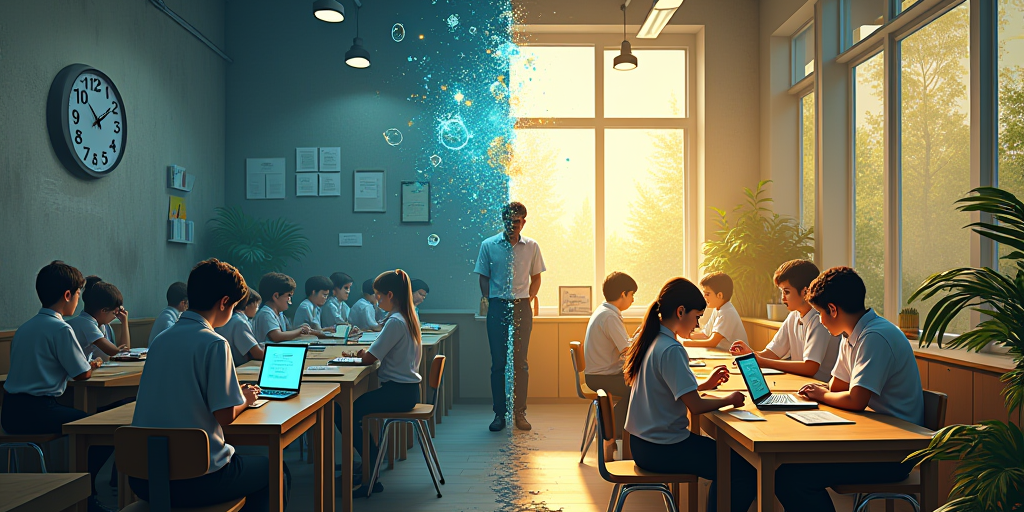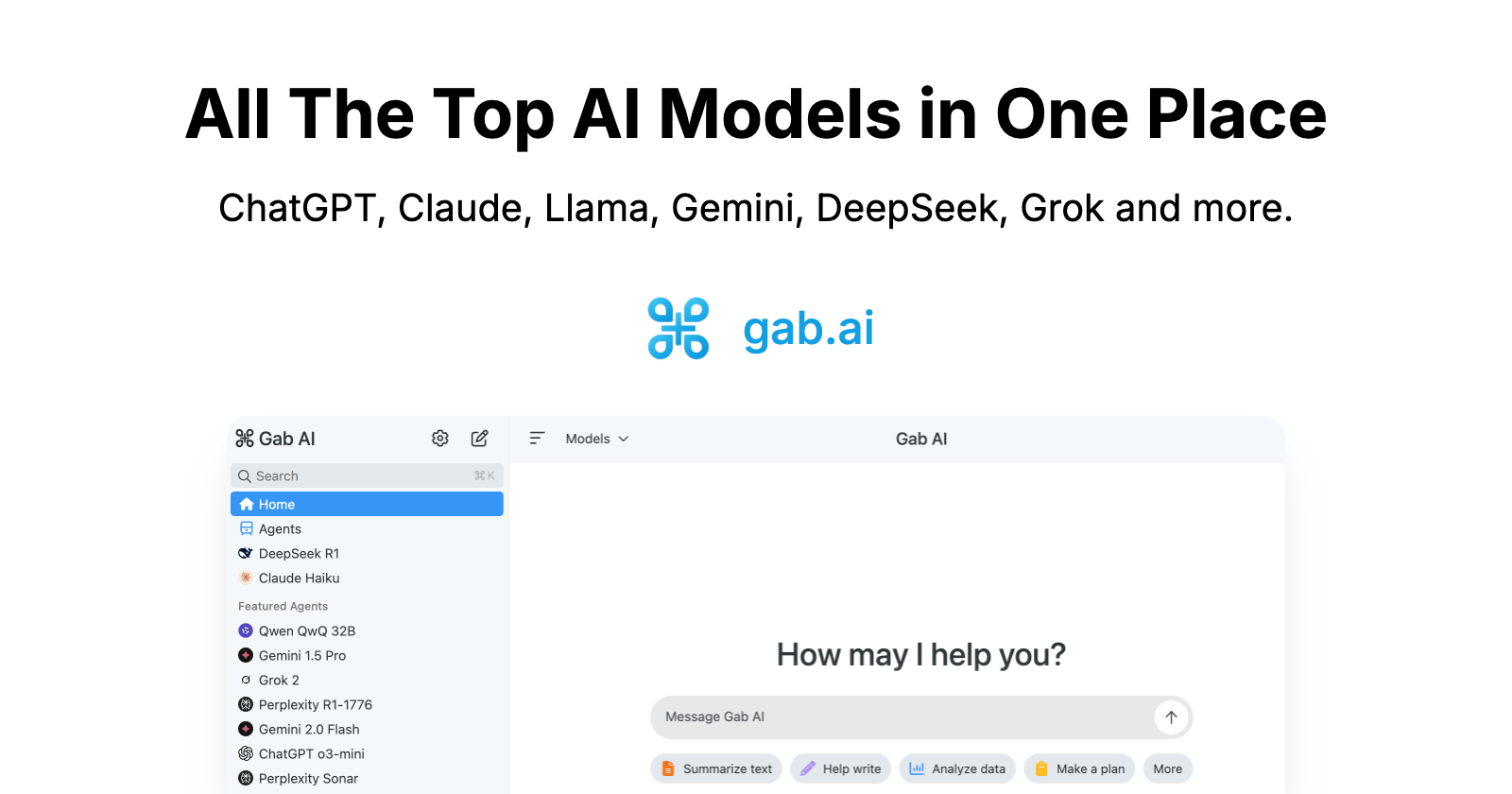AI Is Flipping Education and Work On Its Head
Over the next 15 years, universities will face existential pressure to adapt or perish. Some may evolve into credentialing hubs, offering “micro-degrees” for niche skills.

The modern work and school systems operate on a paradoxical premise: they demand our presence for eight hours a day but extract only a fraction of that time in meaningful productivity. Parents, shackled to desks in open-office plans or endless Zoom grids, often find just two hours of their day spent on high-impact tasks. The rest dissolves into meetings about meetings, bureaucratic hoop-jumping, and the performative theater of “looking busy.”
Similarly, children endure six to eight hours in classrooms where fragmented schedules, standardized pacing, and administrative rituals like lining up, waiting for stragglers, repeating instructions dilute actual learning into a mere two hours of focused engagement. Both systems, rooted in 19th-century industrial logic, prioritize compliance over creativity and attendance over outcomes.
The result? Families fractured by artificial time obligations, reuniting only for hurried dinners and bedtime routines before the cycle repeats. But what if AI could dismantle this archaic machinery? The traditional education system, built on industrial-era models of standardization and rigid schedules, is crumbling under the weight of its own inefficiencies.
Artificial intelligence is not merely a tool for incremental change it is the architect of a total overhaul. At the heart of this transformation is a radical reimagining of how knowledge is delivered, absorbed, and validated. At Alpha School in Texas, students spend just two hours a day learning with AI, yet they outperform 98% of students nationwide, scoring in the top 1-2% on standardized tests.
Meanwhile, educators are shedding the shackles of administrative drudgery. AI tools now automate grading, generate dynamic lesson plans, and even simulate student engagement patterns to refine teaching strategies. Teachers are free to do what humans do best: mentor, inspire, and connect. The irony? The more AI infiltrates classrooms, the more human education becomes.
This isn’t just a marginal improvement—it’s a complete paradigm shift. And the best part? With platforms like Gab AI, parents can customize their child’s AI teacher agent to reflect their values at the system prompt level. No more progressive indoctrination, no more distorted history, no more moral relativism. Want an AI that teaches from a Christian worldview? You can have it. Want one that rejects DEI propaganda and upholds fact-based learning? Done. Tools like Synthesis, shown in the video above, are even customizing learning to each individual child. Like Gab AI, Synthesis was also started by a Christian entrepreneur.
Check out Gab AI and use all of the top AI models in one spot.
People often ask me where my kids will go to college. I laugh. In 15 years, colleges won’t matter nearly as much. We already carry superintelligent machines in our pockets. Every six months, they get smarter. Where will they be in a decade and a half? Asking about college in 2040 is like asking what VHS player your kids will have in 1993. They won’t have one, because the technology will be obsolete. Something new will come along.
Critics argue that reducing school hours might deprive children of socialization but this assumes socialization only happens in crowded classrooms under fluorescent lights. Freed from institutional custody, kids could engage in community sports, apprenticeships, or collaborative projects with peers worldwide via virtual platforms. The real issue isn’t less time in school but better time spent everywhere else.
The broader implication? A radical restructuring of daily life. If work and school no longer monopolize daylight hours, families could reclaim afternoons for shared meals, exploration, or unstructured downtime. Parents might attend their child’s soccer game at 11 a.m. without guilt. Teens could pursue passion projects or part-time jobs without burnout. The artificial segregation of “work,” “learning,” and “life” would blur into a fluid continuum where purpose and joy aren’t compartmentalized.
The implications for higher education are destabilizing. The average college graduate in the U.S. now carries $30,000 in debt for a degree that often fails to guarantee employment. Meanwhile, AI tools already deliver Ivy League-quality instruction for pennies on the dollar. Why pay $60,000 a year for a lecture hall experience when a smartphone app can teach the same material with greater interactivity and personalization? The answer, increasingly, is that you wouldn’t.
Over the next 15 years, universities will face existential pressure to adapt or perish. Some may evolve into credentialing hubs, offering “micro-degrees” for niche skills. Others might collapse entirely, replaced by decentralized networks resembling medieval guilds, or communities where experts mentor apprentices, validate competencies through real-world projects, and leverage AI to scale their reach. Imagine a future surgeon trained through VR simulations guided by an AI trained on decades of surgical data, or a programmer certified by a tech “guild” after building an app mentored by an AI modeled on Steve Jobs. The monopoly of the four-year degree is ending, and AI is holding the sledgehammer.
The question isn’t whether this future is coming it’s how swiftly we’ll embrace it. Parents, educators, and policymakers must choose: resist and risk irrelevance, or adapt and unlock a world where every child has a Socrates in their pocket, every teacher has the tools of a genius, and education is limited only by imagination. The AI revolution in education isn’t knocking anymore. It’s already here, rewriting the rules. All that’s left is to decide who will pick up the pen.
The 8-hour prison isn’t a natural law; it’s a choice. AI offers us a crowbar to break the bars. By automating drudgery, personalizing learning, and valuing outcomes over optics, we could liberate time, the most precious resource, for what truly matters: connection, curiosity, and the quiet moments that make us human. The future isn’t about working faster or studying harder.
It’s about living better, together.
Use all of the top AI models in one dashboard with Gab AI.



